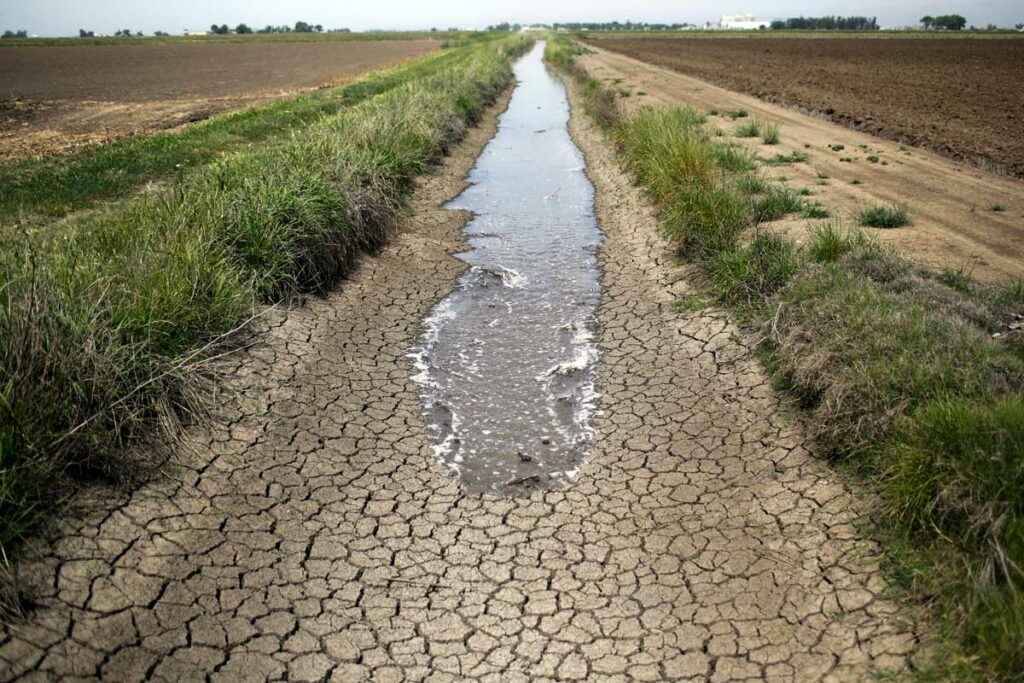Researchers revealed on Wednesday that climate change effects from CO2 emissions already present in the atmosphere will decrease global GDP by around US$38 trillion in 2050, which equates to nearly a fifth, regardless of how aggressively global carbon emissions are reduced. This was highlighted in a publication in the journal Nature.
Despite this, rapidly reducing greenhouse gas emissions is essential to mitigate even more severe economic consequences beyond the mid-century, the researchers emphasized. According to the study, if the planet warms significantly beyond two degrees Celsius above mid-19th century levels, the economic damage from climate change could surge by tens of trillions of dollars annually by 2100.

The average surface temperature of Earth has risen by 1.2 °C above those historical levels, intensifying heatwaves, droughts, floods, and tropical storms, all exacerbated by rising sea levels. The study noted that the yearly investment required to keep global warming below the 2 °C target set by the 2015 Paris Agreement represents only a small portion of the potential damages avoided.
“Staying under the 2 °C threshold could limit average regional income loss to 20 per cent compared to 60 per cent” in a high-emissions scenario, said Max Kotz, lead author and a complexity science expert at the Potsdam Institute for Climate Impact Research (PIK), in a statement to AFP.
While economists are divided over the scale of spending needed to forestall climate damages—with some advocating for substantial immediate investments and others suggesting a delay until more wealth and advanced technology are available—the study avoids this controversy. However, its stark economic impact estimates strengthen the argument for urgent action, according to the researchers and other experts.
“Our calculations are super relevant,” co-author Leonie Wenz, also from PIK, told AFP. These findings could help shape government adaptation strategies, business risk assessments, and UN negotiations about compensations for developing countries minimally responsible for global warming.
The research indicates that mostly tropical countries, already experiencing economic contractions due to climate damage, will suffer the most. “Countries least responsible for climate change are predicted to suffer income loss that is 60 per cent greater than the higher-income countries and 40 per cent greater than higher-emission countries,” senior PIK scientist Anders Levermann noted.
Even wealthy nations like Germany and the United States are projected to experience a reduction in income by 11 per cent by 2050, with France facing a 13 per cent decline. The analysis was derived from over four decades of economic and climate data across 1,600 regions, allowing for a more detailed assessment of damages that include factors like extreme rainfall, overlooked in earlier studies.
The report also considered intra-annual temperature fluctuations and the extended economic impacts of extreme weather events. “By accounting for these additional climate variables, the damages are about 50 per cent larger than if we were to only include changes in annual average temperatures,” Wenz explained. According to the study, these locked-in damages will cut the global GDP by 17 per cent in 2050 compared to a scenario without further climate impacts post-2020. Yet, these figures might still be conservative.

“These are likely to be an underestimate of the costs of climate change impacts,” commented Bob Ward, policy director at the Grantham Research Institute on Climate Change and the Environment in London, prior to the study’s release. Excluded from the study are the impacts of sea-level rise, more potent tropical cyclones, the destabilization of ice sheets, and the degradation of major tropical forests.
Climate economist Gernot Wagner, not involved in the study, remarked that while billions in damages are inevitable, this does not negate the benefits of reducing carbon pollution. “The costs of acting are a fraction of the costs of unmitigated climate change,” he said. As of 2022, global GDP was just over $100 trillion, with projections indicating it could have doubled by 2050 without the impacts of climate change after 2020.








